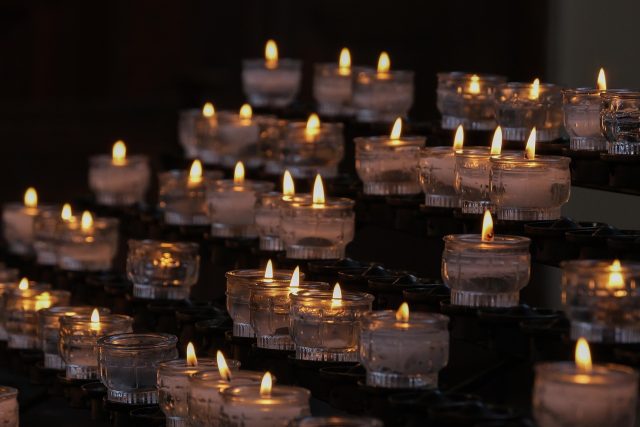
Catholic, Jewish, and Muslim representatives urge dialogue, peace, and shared responsibility amid global tensions
In a historic joint appeal, leaders of Italy’s Catholic, Jewish, and Muslim communities have called for an urgent meeting to reaffirm unity, dialogue, and mutual responsibility in the face of growing hatred and polarization. The statement, signed by Cardinal Matteo Zuppi, president of the Italian Bishops’ Conference, Noemi Di Segni, president of the Union of Italian Jewish Communities, and Imam Yahya Pallavicini, vice president of the Islamic Religious Community of Italy, emphasizes the need for faith leaders to rise above divisions and act together.
“Let us meet, bishops, rabbis, and imams, immediately and without hesitation,” the appeal states. “A simple, direct encounter, not conventional or confessional, but one that can transmit the authentic message of peace, hope, and fraternity among the descendants of Abraham.” The initiative carries symbolic weight, reflecting not only the long history of interfaith dialogue in Italy but also the urgent need for collective moral leadership at a time when international conflicts risk fuelling divisions at home.
A Shared Call for Responsibility
The leaders’ message is clear: hatred cannot be ignored, minimized, or left unchecked. The signatories stress that their meeting is not just a symbolic gesture but an invitation to their communities across Italy to take practical steps in promoting peace at both the local and national levels.
“We hope that, following this message, our religious communities can promote activities in neighbourhoods, schools, and public spaces to counter the seeds of hatred that attempt to sow devastation here as well,” the document continues. By explicitly urging concrete initiatives, the appeal recognizes that interfaith dialogue must extend beyond high-level meetings to daily life—through education, cultural exchanges, and shared community projects that foster mutual understanding.
Addressing the Challenges of Polarization
The appeal does not shy away from addressing the toxic narratives that often accompany conflicts in the Middle East and reverberate in European societies. “We must denounce the obscenity of propaganda that clouds sound judgment and trivializes the deep sense of our common humanity,” the leaders write. This propaganda, they warn, pushes communities to take sides in a conflict thousands of miles away, while fuelling antisemitism, Islamophobia, and even hostility toward Christianity. Such dynamics, they argue, threaten the very fabric of coexistence in pluralistic societies like Italy.
The statement goes further, linking true security and justice to mutual recognition: “No security will ever be built on hatred. Justice for the Palestinian people, like security for the Israeli people, passes only through reciprocal recognition.” This balanced position reflects a refusal to be drawn into polarized narratives that pit one community against another. Instead, the leaders place the emphasis on a shared human dignity that transcends religious or ethnic identity.
Italy as a Platform for Dialogue
The appeal is particularly significant in the Italian context. Italy has long been a crossroads of faith traditions and home to diverse religious communities. The country’s history of Catholic predominance has gradually given way to a more pluralistic landscape, enriched by Jewish and Muslim contributions. By positioning Italy as a space where dialogue between the three Abrahamic faiths can flourish, the appeal underscores Rome’s potential to serve as a model of coexistence. Cardinal Zuppi’s involvement also resonates internationally, given his role as a papal envoy and his experience in mediation efforts abroad.
A Universal Message in a Time of Division
Although rooted in Italy, the message carries global resonance. Around the world, tensions linked to religious or political conflicts often spill over into diaspora communities, deepening mistrust and hostility. By making a joint stand, Italian faith leaders send a signal that interreligious cooperation is not only possible but urgently needed. Their emphasis on fraternity among the “descendants of Abraham” recalls the shared heritage of Judaism, Christianity, and Islam, while also highlighting the responsibility of these traditions to serve as instruments of peace rather than division. In this sense, the appeal mirrors broader efforts, including Pope Francis’s interfaith initiatives and similar dialogues worldwide, aimed at countering radicalization and promoting coexistence.
From Words to Action
For the signatories, however, words are not enough. The challenge now lies in translating this appeal into concrete action—bringing together communities for dialogue, promoting joint initiatives in schools and cities, and giving younger generations the tools to resist narratives of hatred. The urgency is palpable. At a time when war and conflict dominate global headlines, and when divisions risk seeping into local communities, the joint voice of bishops, rabbis, and imams in Italy offers a timely reminder: peace begins at home, with dialogue, respect, and shared responsibility.
A Path Forward
The joint appeal of Zuppi, Di Segni, and Pallavicini represents more than a call to meet. It is an invitation to reimagine the role of religion in society—not as a source of division but as a catalyst for reconciliation. By insisting that “no security will ever be built on hatred,” the faith leaders remind Italians—and the world—that peace requires courage, empathy, and above all, recognition of the other’s humanity. Their words may well serve as a beacon for interfaith cooperation in an era that desperately needs it.



 Subscribe
Subscribe